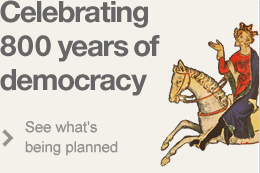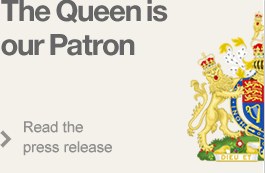Roger de Montbegon (c. 1165-1226) was another of the group of hard-line opponents of King John referred to by contemporaries as ‘the Northerners’. Roger was the son of Adam de Montbegon and his wife Maud, daughter of Adam FitzSwain. His family held the barony of Hornby in Lancashire and other estates in Nottinghamshire, Lincolnshire and the West Riding of Yorkshire.
In Richard I’s reign Roger had been a close supporter of John, then count of Mortain, joining him in his rebellion against the king during the latter’s imprisonment in Germany, and suffering temporary forfeiture of his estates as a result. In 1199 he offered 500 marks (about £333) to John, by now king, for the marriage of Olivia, widow of Robert FitzJohn, whom he shortly took as his wife. In the new reign Roger found himself in receipt of fewer favours than he had expected, and as early as 1205, when trouble was brewing in the north following John’s loss of Normandy, he was suspected of disaffection. Not surprisingly, he had many ties of association with other northern malcontents, notably Eustace de Vesci and William de Mowbray, to both of whom he stood surety for the repayment of debts to the king. In 1214 he was one of four members of the future Twenty Five who from the start resisted payment to the king of tax in lieu of military service in Poitou – the others being de Vesci, Mowbray and Richard de Percy. In the wake of John’s rejection of Magna Carta and the outbreak of civil war he was active on the baronial side but managed to avoid involvement in the baronial defeat at Lincoln. With de Percy, he made his peace with the new regime in August 1217.
Roger spent much of the next three years engaged in a bitter struggle for the recovery of his Nottinghamshire manors of Clayworth, Oswaldbeck and North Wheatley. Throughout the process he faced stubborn opposition and delaying tactics from the sheriff of Nottingham, Philip Mark, a former ally of John and a possible real-life model for the sheriff of Nottingham of the Robin Hood ballads. Roger himself, however, proved overbearing, and determined to get his own way. In 1220 he was accused of holding onto stock which he had seized ‘contrary to the king’s peace and the statutes of the realm’. A decision on his right to present a deputy to represent him in a duel was postponed since he was, in the court’s words, ‘a great man and a baron of the lord king’. When the Nottinghamshire court insisted on holding onto some of his own stock which had been distrained, he withdrew from the court exclaiming that, if it would not restore that stock, he would see to it himself. The constable of Nottingham then asked him three times ‘by the counsel of the court’ that he should return to hear the consideration of the court. This he refused to do. It was said in the court that if he had not been a great man and a baron of the king ‘his person might well have been detained for so many transgressions’. Roger, for all his involvement in the campaign to subject royal authority to the law, was not so keen on application of the same idea in his own case.
By Professor Nigel Saul, Royal Holloway, University of London.
Featured Article
When you were kind enough to ask me to speak this evening I was Master of the Rolls and as such ex officio Chairman of the Magna Carta Trust. The Magna Carta Trust is a charitable body devoted to increasing knowledge of and...
Read on...Recent Articles
- Magna Carta's American Adventure
- 800th anniversary of Bristol...
- Bristol 800 concert and...
- Emancipation and Magna Carta
- Terrorism and Tolerance -...
- Magna Carta
- Magna Carta Benches mark...
- ABA Magna Carta Memorial...
Stay updated
If you would like to keep informed about the work of the Magna Carta Trust and our partners, please sign up to the newsletter below.
Become a Supporter
There are a number of significant supporter opportunities. Register your interest early to ensure the widest range of options.
Find out more




